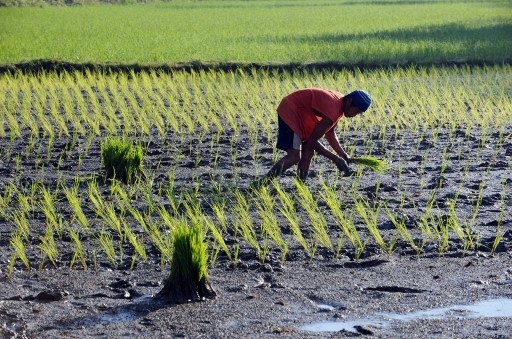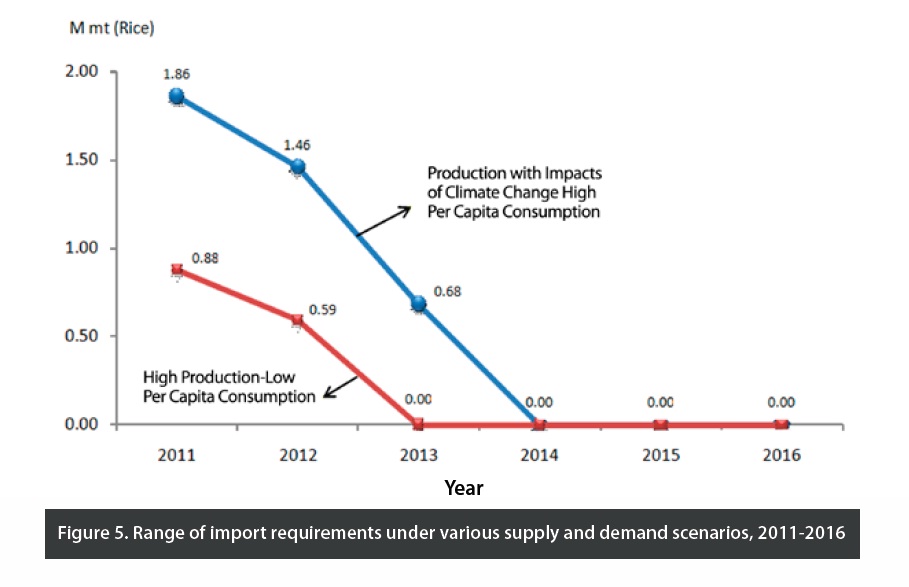SUMMARY
This is AI generated summarization, which may have errors. For context, always refer to the full article.

MANILA, Philippines – The national government remains confident that the country’s aim to be self-sufficient in rice in 2013 is attainable and on track.
In a briefing on Wednesday, September 5, Presidential spokesman Edwin Lacierda told reporters that despite the apprehension expressed by the Asian Development Bank (ADB) in its recently published papers, Agriculture Secretary Proceso J. Alcala was able to assure the President that the Philippines will be self-sufficient in rice next year.
Lacierda added that Secretary Alcala is willing to sit down again with ADB officials regarding the government’s self-sufficiency plans.
“Secretary Procy Alcala also mentioned previously the statement of ADB—now, correct me if I’m wrong, I’m quoting from Secretary Alcala—he said that the previous statement of ADB was that the Philippines need not attain self-sufficiency in 2013. It has moved on and shifted to ‘they cannot meet rice self-sufficiency in 2013’,” Lacierda said.
“The position taken by Secretary Procy Alcala is that if we have the capability and we do have the capability to attain self-sufficiency in 2013, why not do it? And that’s the reason why Secretary Procy Alcala is very confident that we will attain rice self-sufficiency by 2013,” he added.
The national government targets to attain self-sufficiency in 2013 and may no longer need to import the scheduled 500,000 metric tons (MT) of rice it initially declared.
Alcala said the target palay production next year is 20 million MT, which would eventually make the Philippines sufficient in rice.
He added that the country also intends to start exporting special rice varieties to the Middle East, Europe, and the United States next year.
Infrastructure as bottleneck
An ADB economist said on September 4 that the Philippines will miss its target of attaining rice self-sufficiency in 2013 due to infrastructure constraints.
In an ADB Live Chat event, ADB Southeast Asia Department Natural Resources and Agriculture Economist Giap Minh Bui said investments in farm-related infrastructure have been lacking, making farming expensive in the country.
Giap said that rice prduction costs seem to be higher in the Philippines than in neighboring countries such as Vietnam, Thailand and Cambodia, which are the world’s biggest rice exporters.
“No, the target will not be accomplished. It is the lack of productive infrastructure that are in operation,” Giap said in the live chat. “There has been insignificant private/household investment in on-farm productive infrastructure.”
Harm to global rice price
Previously, the ADB also released a paper stressing that the Philippines’ goal of attaining rice self-sufficiency in 2013 year may cause harm to the international rice market and cause price shocks.
If this happens, this would be the second time the Philippines, one of the biggest rice importers in the world, affects global rice prices in recent history after being cited as one of the main reasons for the world rice price crisis in 2008.
“Net importing countries have pursued self-sufficiency in rice that is likely to insure them against the risk of trade disruptions. However, the self-sufficiency strategy raises the cost of rice security in the region,” the ADB said in paper titled “Enhancing ASEAN’s Resiliency to Extreme Rice Price Volatility.”
Timetable
The Aquino government has since pursued a rice self-sufficiency policy, which has a timetable as follows:

The Philippines has been citing the self-sufficiency program in rice and overall growth in the crops subsector as the main growth drivers in attaining agriculture growth of 4.3% to 5.3% in the medium term. – Rappler.com
For related stories, read:
- INFOGRAPHIC: How much rice do Filipinos consume?
- Filipinos’ high rice consumption fueled by the poor
- Researchers find gene that can raise rice harvest
- Philippines’ goal not to import rice may harm world market: ADB
Add a comment
How does this make you feel?





There are no comments yet. Add your comment to start the conversation.